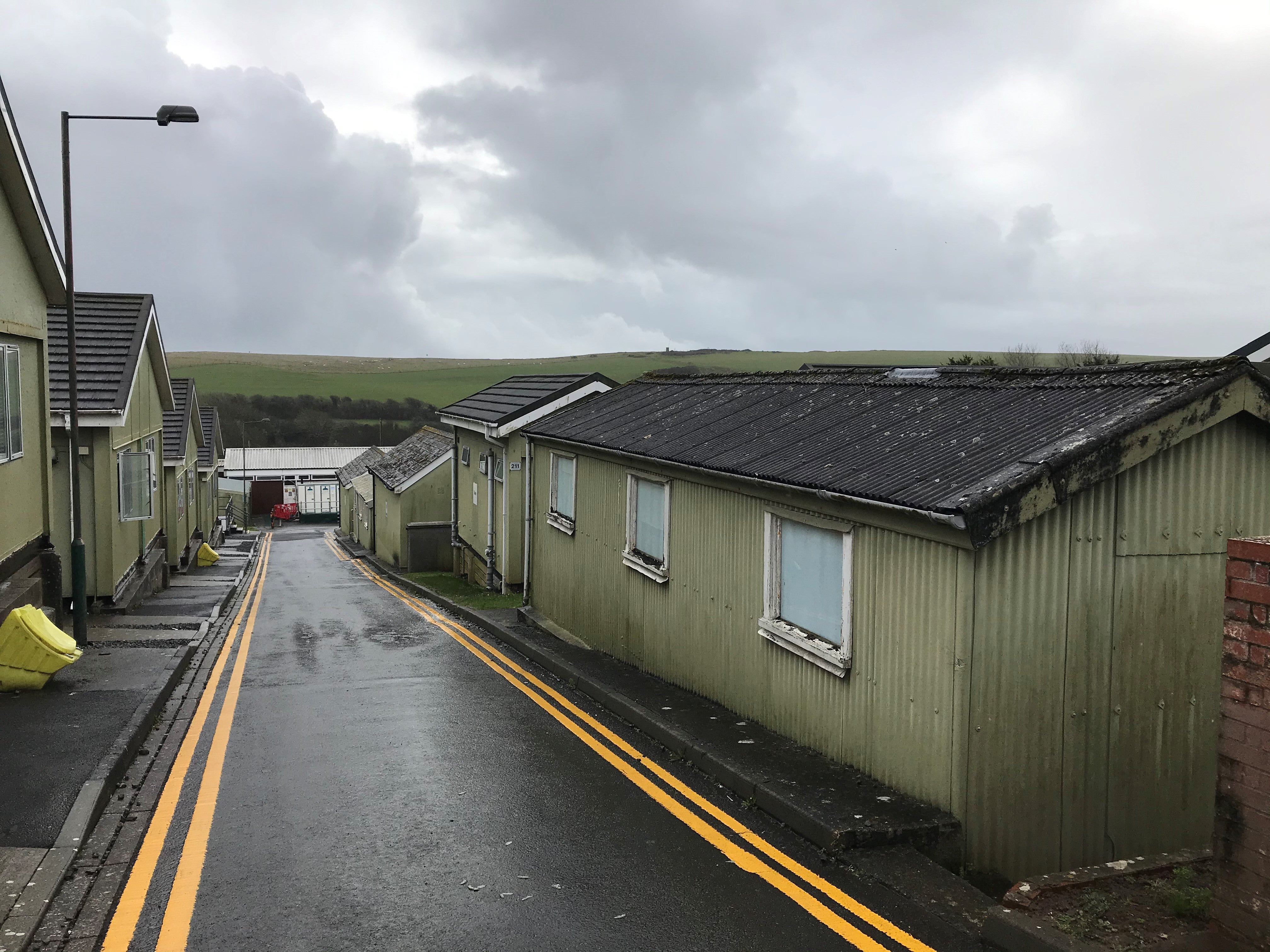Home Office facing calls to end practice of housing asylum seekers in army barracks after camp closure
Move to shut Penally camp prompts calls for ministers to end use of military sites as asylum accommodation

Your support helps us to tell the story
From reproductive rights to climate change to Big Tech, The Independent is on the ground when the story is developing. Whether it's investigating the financials of Elon Musk's pro-Trump PAC or producing our latest documentary, 'The A Word', which shines a light on the American women fighting for reproductive rights, we know how important it is to parse out the facts from the messaging.
At such a critical moment in US history, we need reporters on the ground. Your donation allows us to keep sending journalists to speak to both sides of the story.
The Independent is trusted by Americans across the entire political spectrum. And unlike many other quality news outlets, we choose not to lock Americans out of our reporting and analysis with paywalls. We believe quality journalism should be available to everyone, paid for by those who can afford it.
Your support makes all the difference.The Home Office is facing calls to end the practice of housing asylum seekers in military barracks as it announced it was to close one of the controversial camps.
Penally Barracks, in Pembrokeshire, which has been criticised as being “inadequate” for use as asylum housing, is to be shut by 21 March, and over the coming week there will be a “phased exit” from the site.
But the Home Office confirmed that Napier Barracks, another military site repurposed to house asylum seekers, in Kent, would “remain in operation in accordance with current needs”.
Charities and campaigners called on ministers to also shut the Kent camp, warning that all barracks accommodation was “completely inappropriate and inhumane” for people who have fled torture and violence.
It comes a week after inspectors found that both sites were “inadequate” and that the Home Office had failed to “exercise adequate oversight” of the way the facilities were run.
An email to NGOs on Tuesday from the Home Office’s director of resettlement, asylum support and integration stated that the department would not be proceeding with the application to secure planning permission for Penally Barracks beyond the initial six months granted by emergency powers.
Read more:
It continued: “Crucially, we now have a very welcome commitment from the Welsh government to work with us to increase the amount of dispersal accommodation available in Wales.”
The decision came days after lawyers issued the Home Office a pre-action letter challenging the lawfulness of continuing to use the site beyond six months without being granted permission from the local authority.
The department had been planning to apply to extend planning permission for Penally Barracks in mid-April, but lawyers from Duncan Lewis argued that this would breach the law as it currently only has permission to use the site until 21 March.
Simon Hart, Conservative MP for Carmarthen West and South Pembrokeshire and secretary of state for Wales, wrote to residents to confirm the decision, saying it followed “many weeks of discussions” between him, the Wales Office and the Home Office ministerial team.
“As a cabinet colleague of the home secretary, I felt the best course of action was to engage and negotiate,” his letter stated.
It emerged earlier this month that the Home Office was planning to move more people into Napier Barracks within weeks, despite a series of damning revelations about unsuitable conditions and a major coronavirus outbreak on the site in mid-January.
Naomi Phillips, director of policy and advocacy at the British Red Cross, welcomed the news of the closure, and said the Home Office must also close the Kent camp.
“We have consistently raised serious concerns with the Home Office that Penally, and other barracks sites, are completely inappropriate and inhumane as housing for people fleeing war, persecution and violence,” she said.
“We want to see the urgent closure of these sites, and a long-term solution that allows people to live in safe, suitable and secure accommodation.”
Kolbassia Haoussou, director of survivor empowerment at Freedom from Torture, echoed her remarks, saying the Home Office “must also now close Napier Barracks, which remain open despite repeated warnings of the life-threatening conditions inside”.
He added: “If this government is serious about improving the asylum system, it will close the barracks, make quick and fair asylum decisions, and house people humanely within our communities so they can start to rebuild their lives.”
A Home Office spokesperson said the department had decided not to extend emergency planning permission beyond six months because the “pressures put on the asylum estate” during the pandemic had “eased”.
Join our commenting forum
Join thought-provoking conversations, follow other Independent readers and see their replies
Comments